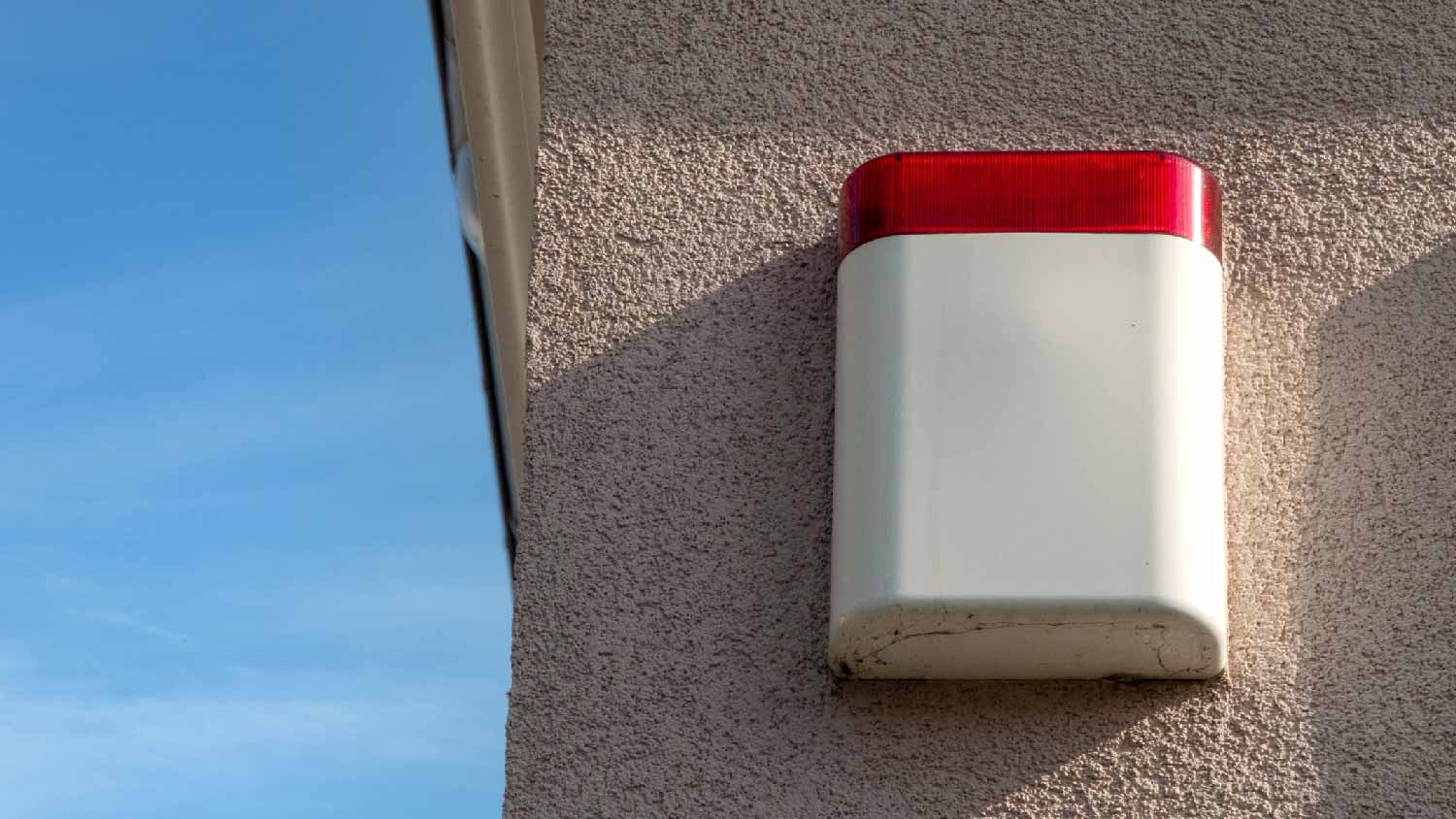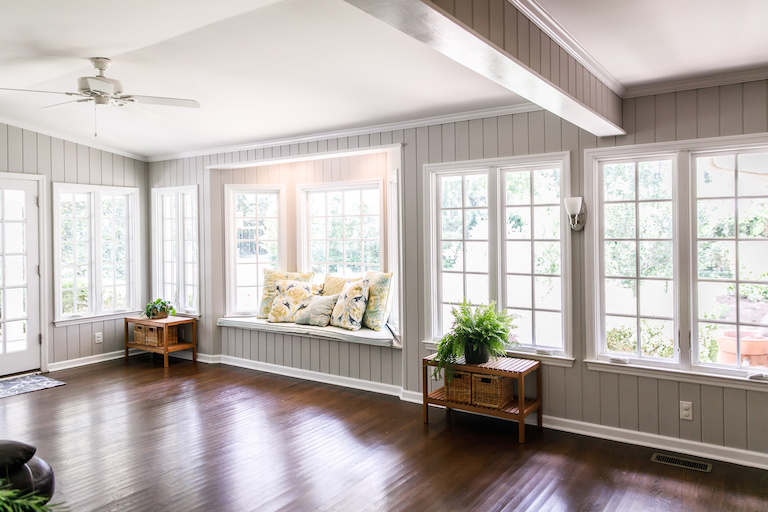
Updating broken and outdated light switches isn't as tricky as you might think. We'll cover the considerations and cost to install a light switch in this guide.
Electrical service costs depend on your project and location. Check with a local pro for your specific job.
Electricians in Washington, D.C. charge $40 to $50 per hour for basic electrical tasks like installing an outlet.
There are many different types of outlets, and adding extra features like USB connections can cost significantly more.
Keep in mind that installing an outdoor outlet is more expensive than indoor counterparts due to additional required electrical work.
Installing a new outlet (or several) will enhance the electrical functionality of your home, making it more convenient to place appliances, electronics, and more. The cost to add an electrical outlet in Washington, D.C. is $200 on average, but most homeowners pay between $140 and $260. Let’s review several of the important cost factors you’ll have to consider that will affect the price of outlet installation in the nation’s capital.
Adding an outlet is a simple project, but costs will vary depending on a few factors. Your electrician will use these factors to determine an estimate of how much to charge.
The most essential factor is the type of outlet you’re installing. For example, outdoor outlets need special wiring, parts, and covers, and it’s usually much more difficult to route wiring through exterior walls. That means an outdoor outlet can cost up to $1,000 or more, making it an exception to the normal average.
Check out the average cost per type of outlet:
| Outlet Type | Average Cost Per Outlet |
|---|---|
| Standard (120V) | $3–$5 |
| Heavy-duty (220V, 240V, 250V) | $10–$20 |
| GFCI | $7–$25 |
| AFCI | $20–$30 |
| Floor | $30–$50 |
| Coax | $5 |
| Tamper-resistant | $5–$10 |
| Smart | $25–$50 |
| Rotating | $8–$20 |
| Outdoor | $1,000–$1,400 |
| LED | $10–$30 |
| USB | $20–$40 |
| Recessed | $10–$60 |
| Ceiling | $3–$5 |
| TV | $3–$5 |
If you want to install more than one outlet, costs will, of course, be higher. But each consecutive outlet costs a bit less, because they’re easier to install simultaneously, so labor costs and other fees will be lower.
| Number of Outlets | Average Cost Range |
|---|---|
| 1 | $130–$300 |
| 2 | $250–$600 |
| 3 | $400–$900 |
| 4 | $500–$1,200 |
| 5 | $650–$1,500 |
| 6 | $800–$1,800 |
| 7 | $950–$2,100 |
| 8 | $1,100–$2,400 |
| 9 | $1,200–$2,700 |
| 10 | $1,350–$3,000+ |
When installing an outlet, it needs to be wired into an existing circuit or electrical system, which means the distances from the current wiring is very important.
The more unusual your outlet location, the more the outlet will cost to install. Ceiling and wall outlets are the average, although ceiling versions may cost more in labor. A recessed outlet costs $10 to $60 more due to difficult accessibility, while a floor outlet is even pricier due to the extra work involved in cutting through flooring.
The condition of your wiring system also impacts the cost of installing outlets. When hiring an electrician, determine whether they need to conduct a full electrical inspection to evaluate whether the wiring is too worn and needs to be replaced before installing the new outlet. If rewiring your home is needed, it can add $550 to $2,500 to your total cost. This often depends on the age of your home and the condition of the existing electrical system.
Don’t forget to budget for the outlet faceplates. Plastic outlet covers often cost less than $10, while custom or metallic styles can cost over $100, depending on the design.
Extra outlet features include rotating outlets, outlets with USB connections, or outlets with indicators will cost more in labor and materials. However, these advanced features can increase functionality, making them worth the additional investment.
Adding one or multiple new outlets should be handled by a professional electrician to ensure its safety and functionality. Here’s what to expect when you hire a local electrician.
Your electrician must be licensed to work in the District of Columbia. Installing a new outlet isn’t the most complicated project, but it requires a certified electrician with the proper insurance. Before hiring a D.C. electrician, verify their licensure and insurance information.
Electricians tend to charge different rates depending on their certifications. For example, a master electrician’s labor will cost significantly more than a journeyman’s. In Washington DC, electrician rates start around $40 to $50 per hour. Since this job usually takes around an hour and it’s relatively simple, you can expect to pay within this price range.
While adding an outlet is a relatively simple job, it involves adding new wiring to a home, which in D.C. means getting a supplemental systems installation permit. Electricians can help you apply for a permit or take care of the details, but this typically adds a small fee to the project.
In a competitive and busy housing market like Washington, D.C., adding a new outlet or two won’t budge a home price much. However, if you’re adding outlets as part of finishing a room like an attic or a basement to provide extra usable space to a house, that will increase market value.
Plus, most modern home buyers expect outlets in key areas like offices, garages, and kitchens, so installing more to upgrade the technical capability of the home can make it buyer-ready.
Home is the most important place on earth, which is why Angi has helped more than 150 million homeowners transform their houses into homes they adore. To help homeowners with their next project, Angi provides readers with the most accurate cost data and upholds strict editorial standards. We survey real Angi customers about their project costs to develop the pricing data you see, so you can make the best decisions for you and your home. We pair this data with research from reputable sources, including the U.S. Bureau of Labor Statistics, academic journals, market studies, and interviews with industry experts—all to ensure our prices reflect real-world projects.
Want to help us improve our cost data? Send us a recent project quote to [email protected]. Quotes and personal information will not be shared publicly.
From average costs to expert advice, get all the answers you need to get your job done.

Updating broken and outdated light switches isn't as tricky as you might think. We'll cover the considerations and cost to install a light switch in this guide.

Nothing’s more luxurious than your own hot tub after a long day. Maximize your enjoyment by hiring an electrician to wire your hot tub properly.

The average cost to replace an electrical mast is around $750, depending on the size and extent of the replacement. Read on to budget for a meter riser.

Removing an alarm system may require the assistance of a professional electrician. Find out the average cost to remove old house alarms.

Planning out a 50-amp circuit? Selecting the right wire size is crucial. Find out how to determine the right 50-amp wire size.

Wondering who to hire for electrical work on home additions? Compare electricians and electrical contractors to see how pros get the job done.